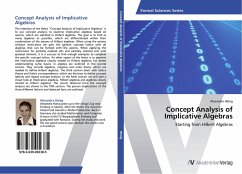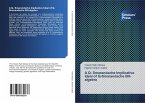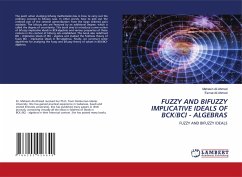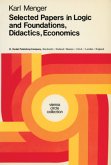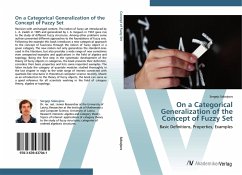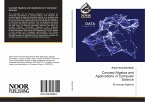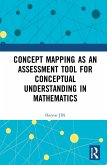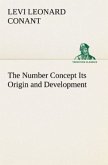The intention of the thesis Concept Analysis of Implicative Algebras is to use concept analysis to examine implicative algebras based on axioms, which are satisfied in Hilbert algebras. The goal is to find as many algebras as possible, which are differentiated within their combination of the axioms of Hilbert algebras. When using the axioms without restrictions we gain the general concept lattice with all algebras that can be formed with the axioms. When applying the restrictions for partially ordered sets and partially ordered sets with greatest element, it is a success to find enough examples to complete the specific concept lattice. An other aspect of the thesis is to examine the implicative algebras closely related to Hilbert algebras. For better understanding some basics in algebra are outlined in the second section. They include algebras, magmas and order theory which are needed to define Hilbert algebras. The third section deals with lattice theory and Galois correspondence, which are the base to define concept lattices and regard concept analysis. In the forth section we will take a closer look at implicative algebras, Hilbert algebras and algebras closely related to Hilbert algebras. The results deduced from the concept analysis are shown in the fifth section. The proven implications of the three different lattices and deduced facts are outlined.
Bitte wählen Sie Ihr Anliegen aus.
Rechnungen
Retourenschein anfordern
Bestellstatus
Storno

